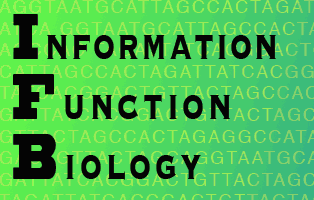Dr. K.D. Farnsworth
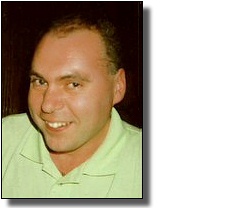
Lecturer in Theoretical and Applied Ecology
BSc. (Hons) Astrophysics,
University of London 1984;
MSc. Acoustics, Southampton, 1985;
PhD. Mathematical Biology, Edinburgh 1994;
MSc. Public Health Epidemiology, Aberdeen 2002.
---------------------------------------------------------------------
Contact Information
Tel: +44 (0)28 9097 2352 (Direct line)
Fax: +44 (0)28 9097 5877
Email: k.farnsworth (at symbol) qub.ac.uk
Room: MBC 6.28
You can also find my work on Google Scholar
Research Interests
There are two branches to my research. The first is developing a general and rigourous definition of the process of living and deriving ecological consequences from this (which incidentally relate to astrobiology - the study of hypothetical life elsewhere in the universe).This branch of my work is now supported by a growing website and an international network of scientists with the common interest of developing an understanding of "living as information processing". The website is here. A significant breakthrough in this theoretical work is now reported here: it is an explanation of how living is the result of a nested structure of computations, the function of each being to make itself (there is a pre-print copy at the bottom of this page). This more theoretical research is intended to answer questions such as :what is biodiversity and how does it contribute to the ecological functions upon which our lives ultimately depend and how can this be developed into an objective valuation of the living environment.
The other branch involves the application of ecological theory to practical problems of current real-life importance. A lot of it now concerns fisheries science - vital work if we are to save the world's fisheries from the global collapse for which many believe they are heading. A major part of this work is pursued through the Irish Government's Beaufort Marine research project: An Ecosystem Approach to Fisheries Management (EAFM), but also includes two European Union FP7 consortium projects.
In general, my team and I are using a variety of theoretical approaches to find real-world solutions to some of the major ecological problems that we face. This work is also being used to create new theories of organism distribution, predator-prey dynamics, life history, and evolution.
Applications
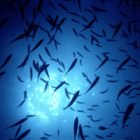
Marine Fisheries Ecology
We need to understand marine ecosystems a lot better to avoid over-exploiting them. My work, in collaboration with the Irish Marine Institute, Danish Technical University and others, contributes to this by reinterpreting predator-prey and competition dynamics in far more realistic terms than previous models allowed. This is needed to provide a scientific underpinning to the reform of fisheries management: one that takes proper account of the complex dynamics of real marine food-webs. For example, we are developing new ways to characterise and monitor the 'health' of fish communities in terms of population size and structure. This has led to an explanation of how life-history of fish can be changed by selective fishery and on the rate of evolutionary change (for example, in the Baltic cod). Using size-structured community models we are examining the quality of ecological indicators for use in fisheries management and investigating interaction between industrial ‘forage’ fisheries producing fishmeal and premium ‘for the plate’ fisheries. We are extending this work to address the highly topical problem of designing and assessing spatial management such as 'closed areas' and other new conservation measures in commercial fisheries and also to objectively assess the interactions between large marine predators such as seals and capture fisheries.
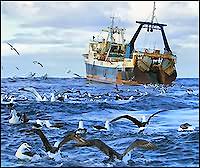
Ecosystem Approach to Fisheries Science
I lead the theoretical component of the Irish Government's Beaufort Marine Research Award in Fisheries Management. The aim is to build the understanding and modelling tools needed to support scientifically based ecological goals for fisheries managers. Relevant community ecology is being developed, leading to practical and evidence based indicators of marine ecosystem health - indicators that are sensitive to fisheries management measures. EAFM requires the inclusion of stake-holders such as fisheries businesses, coservation groups and regulators and to facilitate this we are also developing multi-user interactive tools for testing potential fisheries management strategies.
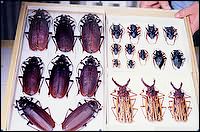
Biodiversity Value - see sDIV meeting page here
Access to sDIV (sFIND) Sharepoint Website
What is biodiversity and what is its objective value?
These are not at all trivial questions and require a combination of philosophy, biology, economics and mathematics to solve them. My approach uses the idea that everything that exists does so by embodying information, where information is defined as differences. This has led to advances in the deaper conceptual understanding of biodiversity and even life itself, in terms of information theory that relates directly to cosmological theories of the nature of reality. (see this preprint). More practically (!) it is providing new and more efficient metrics of biodiversity and its change, especially metrics suitable for the more difficult cases such as constantly moving marine life.
Previously, under the Irish Governments EPA Strive Award scheme, we developed some elementary theory to underpin this work and tested it with data from the Irish coastal waters. This work was mainly pursued by Olga Lyeshevska, who is now applying it in Holland.
We are now using complexity theory and network dismantling to exam biodiversity-function relations: informing policy makers on what we risk loosing if biodiversity is threatened. See here
Various PhD. opportunities (for applied mathematicians and biologists) exist in all these areas - please contact for details.
Current and Recent Collaborations
Science Foundation Ireland: Creating the knowledge for precision fisheries management: spatially aware ‘nudging’ to achieve Maximum Sustainable Yield using real-time fisheries incentives. Collaboration with Prof David Reid (Marine Institute, Ireland) and Dr Sarah Kraak (Thünen Intitut, Germany).
"We aim for maximum productivity of commercial fisheries, constrained by the law (including the Marine Strategy Framework Directive), ensuring ecological sustainability. Paralleling precision farming, spatial ecological data and models enable maximisation of fishing yield within ecological constraints, to the finest possible spatial scale. This project develops the scientific tools to support an incentive scheme that guides fishers to achieve maximum sustainable yields, accounting for ecological variability in time and space as well as stock status. Using ecological data to calculate maps of real-time incentives, leaves fishers free to determine their best spatial distribution of effort to maximise profit sustainably."
Look out for fisheries research with Uffe Høgsbro Thygusen; Jan E Beyer; Ken Haste Anderson (Danish Technical University)
and of course the Beaufort Ecosystem Approach to Fisheries Management
I closely collaborate with David Reid and colleagues at the Marine Institute
and I'm in the following EU Projects : FACTS MYFISH
I am coordinating the network IFB (below) and presently organising the sDIV meeting mentioned here.
Other Information
Member of the European Society of Mathematical and Theoretical Biology.
